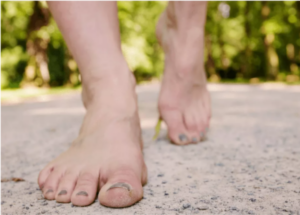Taking care of our feet is an essential part of personal hygiene and comfort, yet choosing the right tools for foot care can sometimes be a daunting task. Among the most popular tools for maintaining smooth and clean feet is the foot scrubber. However, users often wonder if these devices could cause irritation to their feet. Understanding the potential for irritation requires a closer look at several aspects of the foot scrubber, from its material composition to how often it should be used.
The first factor to consider is the **material composition of the foot scrubber**. Foot scrubbers can be made from various materials—each with its own properties and effects on the skin. Next, it’s crucial to examine **skin sensitivity and allergies**. Individual skin types react differently to materials and substances, and what is harmless for one person might be irritating for another. The **abrasiveness and texture of the scrubber** also play a significant role, as too harsh a scrubber can damage the skin, while too soft may not be effective. Moreover, many scrubbers come with **chemical additives** for enhanced cleaning or antibacterial properties, which can be a concern for those with sensitive skin or specific allergies. Lastly, the **frequency and duration of use** are critical; overuse or prolonged use can increase the risk of irritation regardless of other factors.
By delving into these subtopics, this article aims to provide a comprehensive overview of whether foot scrubbers can cause irritation, helping readers make informed decisions about their foot care routines.
Material Composition of the Foot Scrubber
The material composition of a foot scrubber can play a significant role in determining whether it might cause skin irritation. Foot scrubbers are typically made from a variety of materials, each with different properties and effects on the skin. Common materials include plastic, metal, natural bristles, synthetic fibers, and porous stones such as pumice.
A key factor to consider is whether the scrubber material is hypoallergenic. Materials like natural bristles or certain synthetic fibers can sometimes harbor allergens or irritate sensitive skin. Additionally, some materials may be more aggressive than others, potentially leading to micro-abrasions on the skin, which can further increase sensitivity or lead to irritation, especially if the skin is already sensitive or compromised.
It is also crucial to consider the hygiene factor associated with the material of the foot scrubber. Materials that do not dry quickly or are difficult to clean can become breeding grounds for bacteria and fungi, which can cause skin infections and further irritation. Therefore, choosing a foot scrubber that is easy to clean and maintain is essential for preventing skin irritation and ensuring overall foot health.
For those with sensitive skin, it is advisable to opt for a foot scrubber made of a soft, hypoallergenic material. It’s equally important to test the scrubber on a small area of the foot first to check for any adverse reactions before using it more extensively. Regular cleaning and proper maintenance of the scrubber are also critical to avoid any potential skin health issues.
Skin Sensitivity and Allergies
Skin sensitivity and allergies are crucial considerations when evaluating whether a foot scrubber might cause irritation. People’s skin can react differently to various materials, especially if they have sensitive skin or pre-existing allergic conditions. When using a foot scrubber, the potential for irritation largely depends on the individual’s skin type and any known allergies.
For individuals with sensitive skin, it is essential to choose a foot scrubber made from hypoallergenic materials. These materials are specifically designed to minimize the risk of skin reactions. Additionally, users should be cautious about the texture of the scrubber. A too rough scrubber can cause abrasions or irritate the skin, leading to discomfort and potentially even more serious skin issues.
Allergies are another important factor to consider. Some foot scrubbers might be made from materials that release substances which could trigger allergic reactions. Such reactions could range from mild itching to severe rashes. Therefore, it is advisable for users to check the material composition of any foot scrubber they intend to use. If the packaging or product description does not provide enough information on the materials used, contacting the manufacturer for a detailed breakdown might be necessary.
Overall, understanding and paying attention to skin sensitivity and allergies can help prevent unwanted irritation and ensure a safer, more comfortable experience when using foot scrubbers. Individuals should also consider testing the scrubber on a small area of their foot before using it more extensively. This approach helps to identify any potential adverse reactions with minimal risk.
Abrasiveness and Texture of the Scrubber
When considering whether a foot scrubber might cause irritation, the abrasiveness and texture of the scrubber are critical factors to consider. Foot scrubbers are designed to remove dead skin cells and improve the appearance and feel of the feet. However, the level of abrasiveness and the texture of the material used in the scrubber can vary significantly, impacting how gentle or harsh it is on the skin.
A scrubber that is too abrasive can cause micro-tears in the skin, leading to irritation, discomfort, and even infection, especially if the skin on the feet is sensitive or if there are existing cuts or abrasions. On the other hand, a scrubber with a very fine texture might not be effective in removing tough skin or calluses, leading individuals to scrub harder and potentially cause skin irritation.
To minimize the risk of irritation, it is important to choose a foot scrubber with a texture that is appropriate for your skin type and the condition of your feet. For those with sensitive skin, a softer, less abrasive scrubber might be the best choice. It is also advisable to use the scrubmber with gentle pressure and to moisturize the feet after scrubbing to soothe the skin and restore moisture.
Moreover, it is advantageous to look for scrubbers that are specifically designed for sensitive skin and to test the scrubber on a small area of the foot before using it more broadly. By taking into account the abrasiveness and texture of the foot scrubber, users can effectively care for their feet while minimizing the risk of irritation.
Chemical Additives in the Scrubber
Chemical additives in a foot scrubber can play a significant role in determining whether the product might cause irritation to the skin. These additives are often included to enhance the scrubbing efficiency, add fragrance, or preserve the product. However, they can also lead to adverse reactions, especially for users with sensitive skin or specific chemical sensitivities.
The type of chemicals added to foot scrubbers can vary widely. Some common additives include parabens, sulfates, and phthalates, which are used for their preservative and binding properties. Although these chemicals are effective in maintaining the quality and longevity of the scrubber, they can also disrupt the skin’s natural oil balance, leading to dryness, irritation, or even dermatitis.
For individuals with sensitive skin, it is crucial to look for foot scrubbers that are labeled as “hypoallergenic” or “for sensitive skin.” These products are typically formulated without harsh chemicals and are gentler on the skin. Additionally, natural or organic foot scrubbers can be a preferable choice, as they often contain fewer synthetic chemicals and rely more on natural abrasives like salt, sugar, or crushed nut shells.
In conclusion, when choosing a foot scrubber, it is important to consider the potential impact of chemical additives. Checking the list of ingredients and understanding their effects can help prevent skin irritation and ensure a safer, more comfortable exfoliation experience. Always perform a patch test with a new scrubber to check for any adverse reactions before using it regularly.
Frequency and Duration of Use
The frequency and duration of using a foot scrubber are critical factors that can impact the health and condition of your skin. When used properly, foot scrubbers can help remove dead skin cells and improve the appearance of your feet, making them softer and smoother. However, excessive use or using the scrubber for extended periods can lead to skin irritation or damage.
It is important to consider your skin type and sensitivity when deciding how often to use a foot scrubber. For those with sensitive skin, using the scrubber less frequently and for shorter durations may be advisable to avoid irritation. Generally, for most people, using a foot scrubber once or twice a week should be sufficient.
Additionally, the duration of each use should be moderate. Over-scrubbing or scrubbing too hard can strip the skin of its natural oils, leading to dryness and irritation. Gentle scrubbing for a few minutes is usually enough to achieve the desired effect without causing harm to the skin.
Overall, while foot scrubbers can be a beneficial tool for foot care, it is important to use them appropriately to avoid adverse effects. Balancing frequency and duration of use according to your individual skin needs will help maintain healthy, happy feet.




